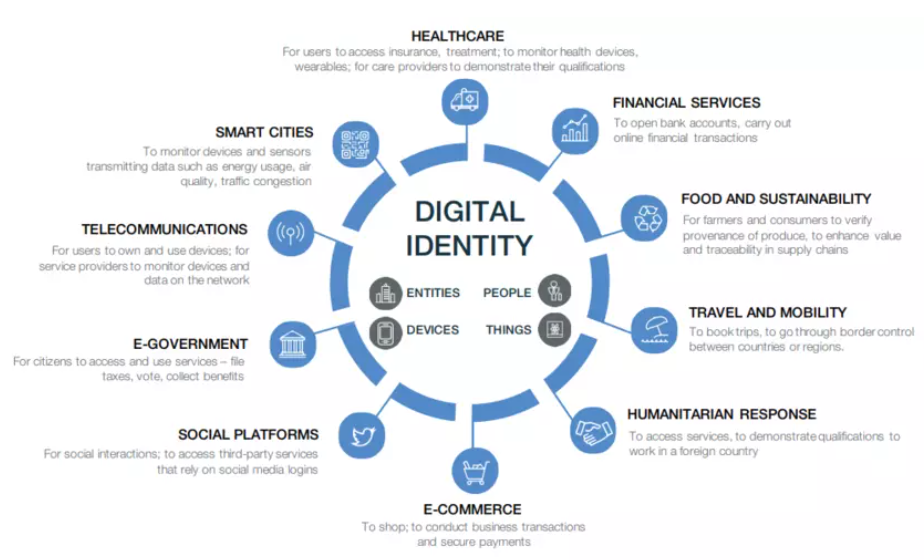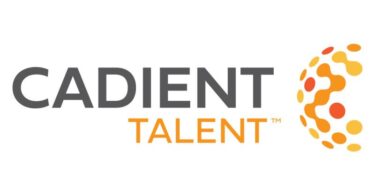The US House of Representatives explores digital identity schemes and hears testimony in favor of public-private collaboration on biometric ID authentication standards championed by the World Economic Forum and the FIDO Alliance.
The World Economic Forum (WEF) is pushing digital identity as a major component of its globalist great reset agenda to revamp the world’s economy and all societal structures.
“The public and private sectors should collaborate to deliver solutions that promote confidence, privacy, choice, and innovation” — “Improving Digital Identity Act of 2021”
In January, 2020, the WEF partnered with the FIDO Alliance on a 26-page report called “Passwordless Authentication,” in which the two entities presented how digital identity could be authenticated using FIDO’s biometric principles.
FIDO, which stands for Fast IDentity Online, developed an authentication standard that looks to eliminate the need for passwords and replace them with a user’s biometric identifiers through voice and facial recognition, iris scans, and fingerprint swipes.
Testifying on digital identity before Congress on Friday was one of the joint WEF-FIDO report contributors, Jeremy Grant, who is also the managing director at Venable — a WEF partner on the Platform for Good Digital Identity.
With the credentials of WEF contributor, FIDO Alliance advisor, Venable managing director, and Better Identity Coalition (BIC) coordinator, Grant told the House Financial Services AI Task Force that the FIDO Alliance standard was the most significant development for authentication market in the past 20 years
Grant expects FIDO will “play a big role in the Federal government’s efforts to comply with the Biden Administration’s recent Executive Order mandate for universal MFA [multifactor authentication] across all government systems.”

Jeremy Grant
“Industry has said they cannot solve this alone […] Government will need to step up and play a bigger role to help address critical vulnerabilities in our digital identity fabric” — Jeremy Grant
There is much overlap between the World Economic Forum, the FIDO Alliance, and the Better Identity Coalition on the subject of digital identity, biometric authentication, and public-private collaborations.
And people like Grant and his associate Parker Crockford have participated in activities relating to all three organizations.
During the hearing, we saw the coming together of those organizations’ solutions play out in the US House of Representatives.
We also saw the WEF’s globalist agenda of public-private collaborations — the merger corporate and state power for any given problem — being openly discussed in Congress.
“Passing the ‘Improving Digital Identity Act’ is where we should start” — Jeremy Grant
“If there is one message this Committee should take away from today’s hearing,” Grant testified, “it’s that industry has said they cannot solve this alone.
“We are at a juncture where the government will need to step up and play a bigger role to help address critical vulnerabilities in our ‘digital identity fabric.’
“Passing the ‘Improving Digital Identity Act’ is where we should start,” he added.
The “Improving Digital Identity Act of 2021” is a bill put forward by Representatives Bill Foster, John Katko, Jim Langevin, and Barry Loudermilk.
Language in the bill echoes that of the World Economic Forum agenda in calling for greater collaborations between the public and private sectors:
- “The public and private sectors should collaborate to deliver solutions that promote confidence, privacy, choice, and innovation.”
- “Government entities, as authoritative issuers of identity in the United States, are uniquely positioned to deliver critical components that address deficiencies in our digital identity infrastructure and augment private sector digital identity and authentication solutions.”
- “State governments are particularly well-suited to play a role in enhancing digital identity solutions used by both the public and private sectors, given the role of State governments as the issuers of driver’s licenses and other identity documents commonly used today.”
- “The private sector drives much of the innovation around digital identity in the United States and has an important role to play in delivering digital identity solutions.”
Between the “Improving Digital Identity Act of 2021” and today’s hearing on verifying identity in the digital age, the United States Congress is inching towards pushing digital identities on the American people with the help of WEF collaborators.
“The US can address its shortcomings by investing in creating ‘Digital First’ identity infrastructure that leverages our existing nationally recognized, authoritative identity systems to create digital counterparts to the paper and plastic IDs they issue today” — Jeremy Grant
In his written testimony, Grant praised the FIDO Alliance standards of biometric authentication while arguing that businesses and governments should work together to “address critical vulnerabilities in our digital identity fabric.”
With cybercriminals as the boogeyman and biometrically-authenticated digital identity as a solution, Grant noted:
“The pandemic laid bare the inadequacies of the nation’s digital identity infrastructure – enabling cybercriminals to steal billions of dollars and creating major barriers for Americans trying to obtain critical benefits and services.”
He added, “When we don’t get identity right, we enable a set of great attack points for criminals and other adversaries looking to execute attacks in cyberspace.
“And with it, we end up creating new burdens for consumers, businesses, and government agencies who need to accurately verify identity to enable high value transactions to be delivered online.”
“When we don’t get identity right, we enable a set of great attack points for criminals and other adversaries looking to execute attacks in cyberspace” — Jeremy Grant
As a solution, Grant proposed, “The US can address its shortcomings by investing in creating ‘Digital First’ identity infrastructure that leverages our existing nationally recognized, authoritative identity systems to create digital counterparts to the paper and plastic IDs they issue today.
“The Improving Digital Identity Act will do just that, and it is a critical piece of legislation.”
While Grant was bullish on doing digital identity with public-private collaborations and FIDO’s biometric authentication standards, there was at least one expert witness that sounded the warning bell on mandatory, biometric-based national identity schemes.
“Under no circumstances should we think about digital identity as a mandatory, biometric-based national identity scheme, or as an avenue for social credit scoring our citizens” — Elizabeth Renieris
Elizabeth Renieris, who is the Founding Director of the Notre-Dame-IBM Technology Ethics Lab at the University of Notre Dame, told Congress how countries around the world have done digital identity wrong.
“In a lot of other countries, the digital identity systems are basically mandated national ID schemes that are tied to civil registration and vital statistics,” Renieris testified.
“If you can’t obtain a digital identity in those countries, you are effectively locked out of life. There is basically nothing you can do, and you don’t exist,” she added.

Elizabeth Renieris
“We must avoid building digital identity systems and infrastructure in a way that further expands and entrenches the surveillance state, as do the national identity systems in India or China” — Elizabeth Renieris
While not being able to obtain a digital identity can leave people locked out of life in some countries, there are far more insidious aspects to digital identity schemes that inherently reward or punish citizens based on their behavior.
In Communist China, for example, digital identity is part of the Communist Party’s social credit system.
Over 30 million people in China are banned from leaving the country, traveling by train or plane, having insurance, renting a home, going to restaurants, and taking out a loan all because of their digital identity-linked social credit score.
As the Chinese propaganda video below states, “If trust is broken in one place, restrictions are placed everywhere.”
In her written testimony, Renieris warned, “We must avoid building digital identity systems and infrastructure in a way that further expands and entrenches the surveillance state, as do the national identity systems in India or China.
“Under no circumstances should we think about digital identity as a mandatory, biometric-based national identity scheme, or as an avenue for social credit scoring our citizens.
“For public schemes, we should avoid the use of a single, centrally-issued, all-purpose, unique identifier for individuals that can be linked across contexts from employment, to education, healthcare, banking, and more.”
In her spoken testimony, Renieris said that India’s digital identity scheme was poorly done.
“If you can’t obtain a digital identity in those countries, you are effectively locked out of life. There is basically nothing you can do, and you don’t exist” — Elizabeth Renieris
“What we’ve seen with digital ID schemes gone wrong is that they’ve basically used a single identifier.
“For example, the Aadhaar number in India — that single identifier is able to track your activity across all facets of your life, from employment, to healthcare, to school, to pretty much everything you do.
“That’s another area where you can’t retain, sort of, autonomy over specific domains of your life.
“For example, you can’t separate your personal and professional reputation. You can’t have this kind of contextualized personal identity.
“I think that’s also really problematic.
“It’s also problematic from the standpoint of data security. If you compromise your number, you have concerns around that,” she added.
“This digital identity determines what products, services and information we can access – or, conversely, what is closed off to us” — World Economic Forum, 2018

Image Source: World Economic Forum
The global digital identity agenda picked-up speed throughout 2020, starting with contact tracing and continuing with immunity and vaccine passports to monitor and control citizen mobility for the greater good.
By connecting your every online/offline interaction, your digital identity can be connected to:
- Every click, comment, and share you make on social media
- Every financial transaction you record
- Your location and where you travel
- What you buy and sell
- Your personal health data and medical records
- The websites that you visit
- Your participation in civic functions (i.e. voting, taxes, benefits, etc.)
- How much energy you consume
- And more
Thus, your digital identity can become an account of your social behavior, which can also be policed.
According to a WEF report from 2018, “Our identity is, literally, who we are, and as the digital technologies of the Fourth Industrial Revolution advance, our identity is increasingly digital.”
“This digital identity determines what products, services and information we can access – or, conversely, what is closed off to us.”
Countries that mandate centralized and interoperable digital identities have created broader surveillance measures under the blanket of serving the public good.
Digital identity schemes are a matter of trust.
Who benefits the most from digital identities — corporations, governments, or the people?
Does convenience come at the expense of liberty?
“The Fascist State […] makes its action felt throughout the length and breadth of the country by means of its corporative, social, and educational institutions, and all the political, economic, and spiritual forces of the nation, organized in their respective associations, circulate within the State” — Benito Mussolini, “The Doctrine of Fascism,” 1932
Governments are notoriously slow when it comes to catching up with emerging technology, and businesses can be more agile in their approach to innovation.
From that perspective, it would make sense to want to have the public and private sectors working together on technological solutions to society’s most pressing challenges.
But can big tech corporate business models really be compatible with a government’s responsibilities to its people?
If public-private collaborations were to become the norm, what would that mean for representative democracies?
If and when corporations and states merge under globalist ideologies, how powerful could your vote actually be?
Who would ultimately be running the show after the line between corporation and state is blurred?
Your digital identity can be used against you in the event of a great reset
COVID vaccine passports threaten fundamental rights of citizens who opt-out
‘The great reset will dramatically expand the surveillance state via real-time tracking’: Ron Paul
A timeline of the great reset agenda: from foundation to Event 201 and the pandemic of 2020
Cyber Polygon furthers great reset agenda of centralized power & surveillance












